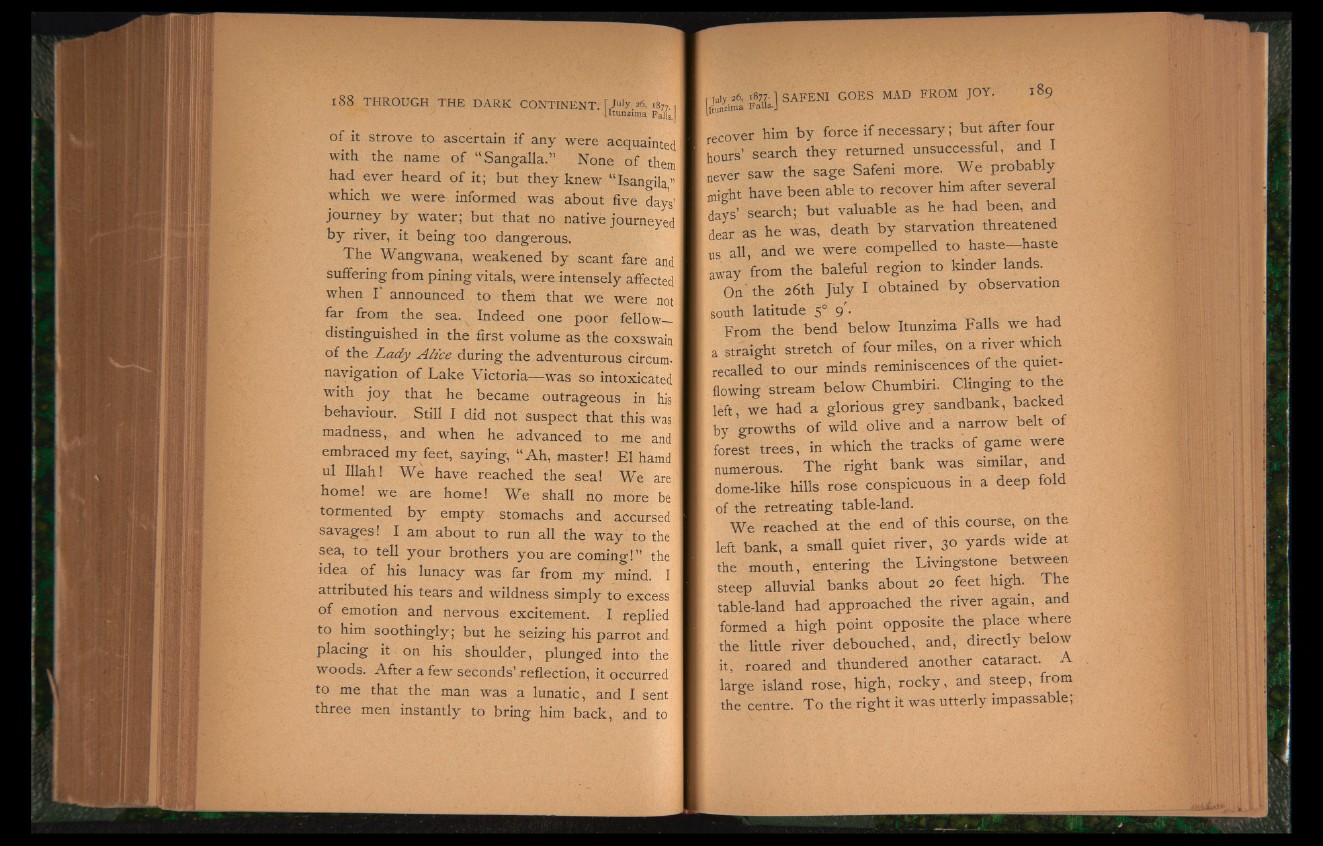
of it strove to ascertain if any were acquainted
with the name of “ Sangalla.” None of them
had ever heard of it; but they knew “ Is-angila"
which we were informed was about five days’
journey by water; but that no native journeyed
by river, it being too dangerous.
The Wangwana, weakened by scant fare and
suffering from pining vitals, were intensely affected
when I' announced to them that we were not
far from the sea. Indeed one poor fellow-
distinguished in the first volume as the coxswain
of the Lady Alice during the adventurous circumnavigation
of Lake Victoria— was so intoxicated
with joy that he became outrageous in his
behaviour. Still I did not suspect that this was
madness, and when he advanced to me and
embraced my feet, saying, “Ah, master! El hamd
ul Illah! We have reached the sea! We are
home! we are home! W^e shall no more b6
tormented by empty stomachs and accursed
savages! I am about to run all the way to the
sea, to tell your brothers you are coming!” the
idea of his lunacy was far from my mind. I
attributed his tears and wildness simply to excess
of emotion and nervous excitement. I replied
to him soothingly; but he seizing his parrot and
placing it on his shoulder, plunged into the
woods. After a few seconds’ reflection, it occurred
to me that the man was a lunatic, and I sent
three men instantly to bring him back, and to
r tuly 36, 1877-1 S A F E N I G O E S M A D F R O M JO Y . 1 8 9
[ltunzi®a Falls-J
recover him by force if necessary; but after four
hours’ search they returned unsuccessful, and I
oever saw the sage Safeni more. We probably
might have been able to recover him after several
days’ search; but valuable as he had been, and
dear as he was, death by starvation threatened
us all, and we were compelled to haste haste
away from the baleful region to kinder lands.
On'the 26th July I obtained by observation
south latitude 50 9 .
From the bend below Itunzima Falls we had
a straight stretch of four miles, on a river which
recalled to our minds reminiscences of the quiet-
flowing stream below Chumbiri. Clinging to the
left, we had a glorious grey sandbank, backed
by growths of wild olive and a narrow belt of
forest trees, in which the tracks of game were
numerous. The right bank was similar, and
dome-like hills rose conspicuous in a deep fold
of the retreating table-land.
We reached at the end of this course, on the
left bank, a small quiet river, 30 yards wide at
the mouth, entering the Livingstone between
steep alluvial banks about 20 feet high. The
table-land had approached the river again, and
formed a high point opposite the place where
the little river debouched, and, directly below
it, roared and thundered another cataract. A
large island rose, high, rocky, and steep, from
the centre. To the right it was utterly impassable;